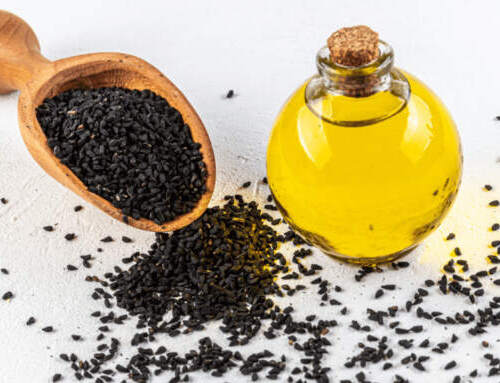Ginger’s role in weight loss is an exciting area of interest, combining its unique flavor with potential health benefits. The active compounds in ginger, particularly gingerol, have been shown to positively influence weight loss and management. These compounds can help boost metabolism, enhance fat burning, and reduce feelings of hunger. Additionally, ginger’s anti-inflammatory and antioxidant properties contribute to overall health, which can be beneficial in a weight loss journey. Studies suggest that when combined with a healthy diet and exercise, ginger can be an effective adjunct in achieving weight loss goals. Its ability to improve digestive health and regulate blood sugar levels further supports this process. Incorporating ginger into one’s diet, whether through a warming cup of ginger tea, adding fresh ginger to meals, or taking ginger supplements, can be a simple yet effective way to aid in weight management, making it a valuable addition for those looking to shed extra pounds naturally.
Ginger’s Impact on Rheumatoid Arthritis
Ginger is increasingly recognized for its benefits in managing rheumatoid arthritis, a chronic inflammatory disorder that affects the joints. The key to ginger’s effectiveness in this area lies in its powerful anti-inflammatory properties, largely attributed to its active compound, gingerol. This compound helps in reducing inflammation, a primary symptom of rheumatoid arthritis, thereby alleviating pain and improving joint mobility for many sufferers.
The anti-inflammatory action of ginger works by inhibiting the production of pro-inflammatory cytokines and the activity of enzymes that contribute to inflammation. This can lead to a decrease in the swelling and pain commonly experienced by individuals with rheumatoid arthritis and joint pain. In addition to its anti-inflammatory effects, ginger also possesses antioxidant properties that can help combat oxidative stress, which is often increased in inflammatory conditions like rheumatoid arthritis.
Ginger’s Role in Heart Health
Ginger’s therapeutic properties extend to heart health, making it a beneficial addition for those concerned with cardiovascular diseases. It contributes to heart health by improving blood circulation, reducing cholesterol levels, and lowering high blood pressure – all key factors in preventing heart disease. The anti-inflammatory and antioxidant effects of ginger also play a significant role in preventing the buildup of plaque in the arteries, a major cause of heart attacks and strokes.
Incorporating ginger into a balanced diet, whether as a spice, in herbal tea, or as a supplement, can therefore be a simple yet effective strategy in maintaining a healthy heart and reducing the risk of heart-related illnesses like a heart attack.

Insulin Sensitivity
Building on ginger’s impressive benefits for heart health, its positive impact on insulin sensitivity adds another layer to its cardiovascular benefits. Insulin sensitivity refers to how effectively the body uses insulin to lower blood glucose levels, and ginger’s ability to enhance this process is particularly beneficial for those at risk of diabetes and its associated heart complications. The active compounds in ginger, especially gingerol, have been shown to improve insulin sensitivity, helping to regulate blood sugar levels more efficiently. This regulation is crucial not only for diabetic management but also for overall metabolic health, which directly ties into cardiovascular wellness. Regular consumption of ginger, therefore, can be a supportive natural measure in maintaining balanced blood sugar levels and ensuring a healthier insulin response, thereby contributing to both diabetes management and heart health.
Sore throats
Ginger’s natural anti-inflammatory and antibacterial properties make it an excellent remedy for soothing sore throats. Its warmth and natural spiciness can help to reduce irritation and inflammation in the throat, providing a comforting sensation. Ginger also promotes salivation and mucous secretion, which can help soothe the throat and ease the discomfort associated with a sore throat. Drinking a ginger tea blend or gargling with ginger-infused hot water are popular and effective ways to harness these benefits. The warmth of the tea can be particularly soothing, while the ginger itself helps to combat the underlying inflammation, offering a natural, comforting remedy for those suffering from sore throats.
Alzheimer’s Disease
Ginger’s potential in supporting brain health, particularly in the context of Alzheimer’s disease, is an emerging area of interest in scientific research. The root’s potent antioxidant and anti-inflammatory properties may play a role in neuroprotection, helping to reduce oxidative stress and inflammation, both of which are believed to contribute to the progression of Alzheimer’s. Compounds in ginger, such as gingerol, have been shown to inhibit the formation of inflammatory compounds in the brain, which can help protect against cognitive decline. While more research is needed to fully understand the extent of ginger’s impact on Alzheimer’s, initial studies suggest that incorporating ginger into the diet could be a beneficial complementary approach in the management of brain health and the prevention of neurodegenerative diseases.
Versatile Ways to Consume Ginger
Ginger can be enjoyed in a multitude of ways, catering to different preferences and needs. Here are some popular methods to incorporate forms of ginger into your diet:
- Fresh Ginger Root:
- Add grated ginger to stir-fries, soups, or marinades for a fresh, zesty flavor.
- Infuse slices of fresh root in hot water to make a soothing tea.
- Ginger Powder:
- Use in baking for ginger-flavored cookies, cakes, and bread.
- Sprinkle into smoothies or oatmeal for a spicy kick. [Ginger Powder]
- Ginger Tea:
- Brew pre-packaged ginger tea bags or steep fresh ginger in hot water.
- Combine with other herbs or teas for a flavorful blend. [Ginger Tea]
- Ginger Dietary Supplements:
- Take in capsule form, especially for those who prefer not to consume ginger directly.
- Follow the recommended dosages on the product label or consult a healthcare provider.
- Ginger Ale:
- Choose ginger ales made with real ginger for digestive benefits.
- Can be a refreshing way to settle an upset stomach.
- Ginger Chews and Candies:
- Enjoy as a sweet treat that also offers the benefits of ginger.
- Useful for motion sickness and to ease a sore throat.
- Try these Ginger Chews
- Ginger Shot:
- Consume as a concentrated dose of ginger, often combined with other juices.
- Ideal for a quick, potent intake of ginger’s benefits.
- Ginger Extract:
- Pickled Ginger:
- Commonly served with sushi, it’s a tasty and digestive-friendly condiment.
- Can be homemade or purchased.
- Ginger Essential Oil:
- Use in aromatherapy for its soothing and invigorating scent.
- Can be diluted and applied topically for its anti-inflammatory benefits, but always with a carrier oil to prevent skin irritation.
- Add a few drops to a diffuser to create a calming atmosphere at home or in the office.
Each method offers a unique way to enjoy ginger’s flavor and health benefits, making it easy to incorporate this versatile root into your daily routine. Whether you prefer it in your meals, as a drink, or as a supplement, ginger provides a range of options to suit every taste and need.

Embrace the Health Benefits of Ginger
In summary, ginger, a flowering plant celebrated in traditional Chinese medicine and backed by scientific evidence, presents a range of health benefits that are truly remarkable. From aiding the digestive system to offering pain relief and improving gut health, ginger’s use is versatile and effective. Clinical trials and systematic reviews have highlighted its potential to lower blood pressure and blood sugar levels, making it a great way to manage chronic diseases. Moreover, the ginger rhizome is beneficial in improving blood flow and strengthening blood vessels, which is good news for those concerned about cardiovascular health.
For individuals interested in natural remedies, ginger can be the best way to complement your health regimen. While it’s generally safe, those on blood thinners or taking high doses of medication should consult their healthcare provider, as large amounts of ginger might interact with certain medications. Incorporating ginger into your diet can be as simple as adding it to sweet potatoes or enjoying it as a tea – it’s a good way to enjoy its benefits.
And for those seeking relief from ailments like postoperative nausea or general body aches, why not consider combining the benefits of ginger with a therapeutic massage? At Body Ache Escape, our expert therapists can help enhance your overall well-being. Schedule an appointment today and experience a holistic approach to health, where the soothing touch of a massage helps support your journey to wellness.





